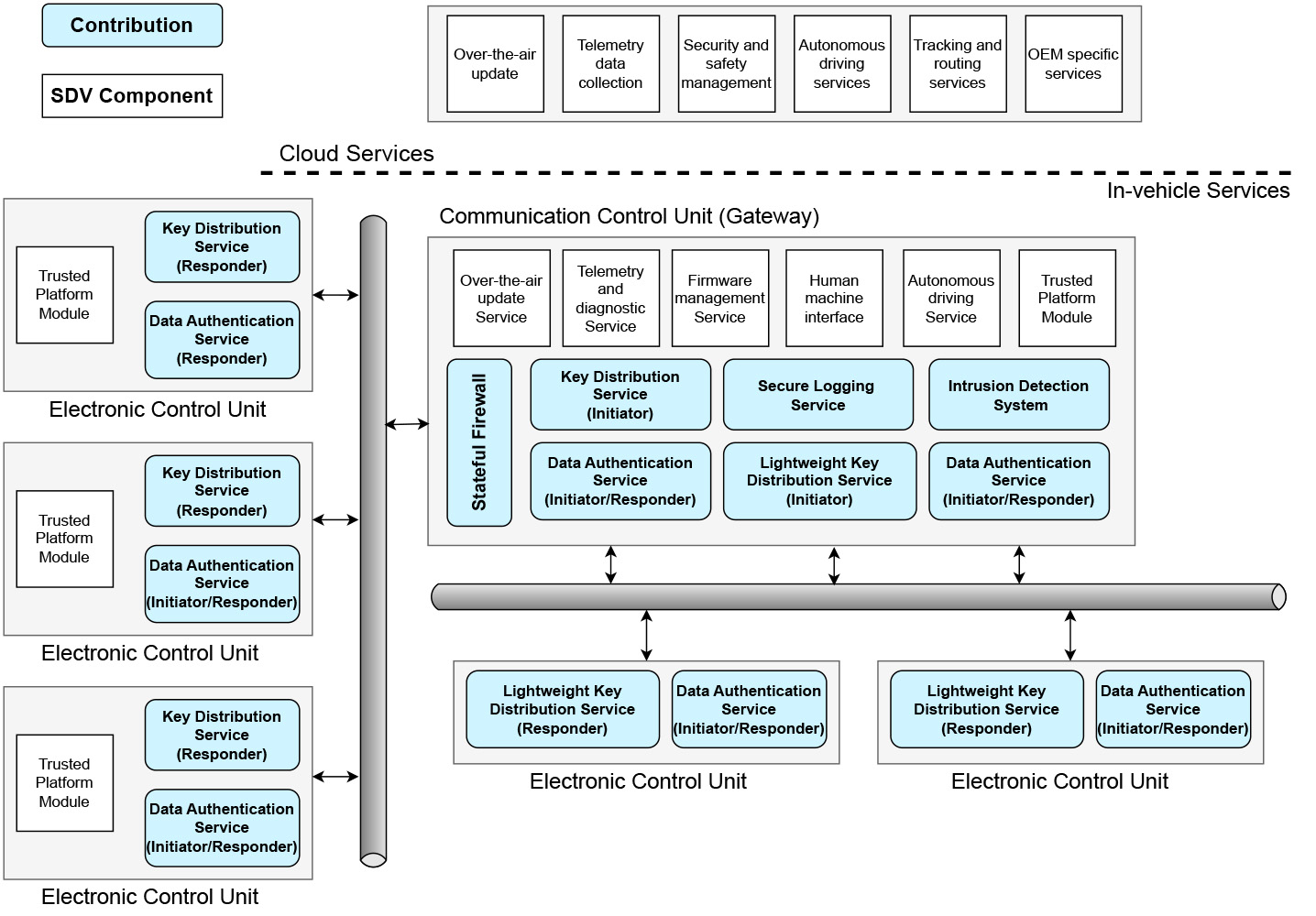Soutenance de thèse Teri Lenard
 |
M. Teri Lenard soutiendra, en vue de l'obtention du grade de docteur ès systèmes d'information, sa thèse intitulée: "Trusted Software-Defined Vehicules" Date: Lundi 23 septembre 2024 à 14h00 Vidéoconférence exclusivement (mot de passe: contacter Teri Lenard) |
Jury :
- Professeur François GREY, président du jury GSEM, RISIS
- Professeur Dimitri KONSTANTAS, directeur de thèse GSEM, RISIS
- Professeur Bela GENGE, co-directeur de thèse Palade University of Medecine, Pharmacy, Science and Technology of Târgu Mures, Romania
- Dr Niels NIJDAM, PhD, co-directeur de thèse GSEM, RISIS
- Professeur Georgios SPATHOULAS NTNU, Norway
- Dr Anastasiaj COLLEN, PhD GSEM, RISIS
Abstract :
Software-Defined Vehicles (SDV) represents the term used to describe modern automotive systems that incorporate complex software features, services, functional and control applications. In SDVs, software components are meant to replace physical electrical/electronic components that handle vehicle control functions. The complexity introduced by SDVs, together with safety requirements of automotive systems, raises concerns in terms of security and trust. In this thesis, a system of security services is proposed to provide defense mechanisms against SDV threats and malicious interventions. The proposed services were designed to leverage security hardware as a root-of-trust. With the integration of security hardware in the design process of security services, we ensure the protection of security primitives (e.g., cryptographic keys), allows secure distribution of long-term encryption and short-term authentication cryptographic keys with state-of-the-art standards, message authentication tags can be aggregated under a single data structure and can be verified independently, the network is monitored with a rule-based stateful firewall and an intrusion detection system, and security alerts are securely logged. The formal correctness of the proposed system of security services is demonstrated through formal proofs, and trust in security services is modeled through the ability of services to react, resist, and protect the system from malicious interventions.

